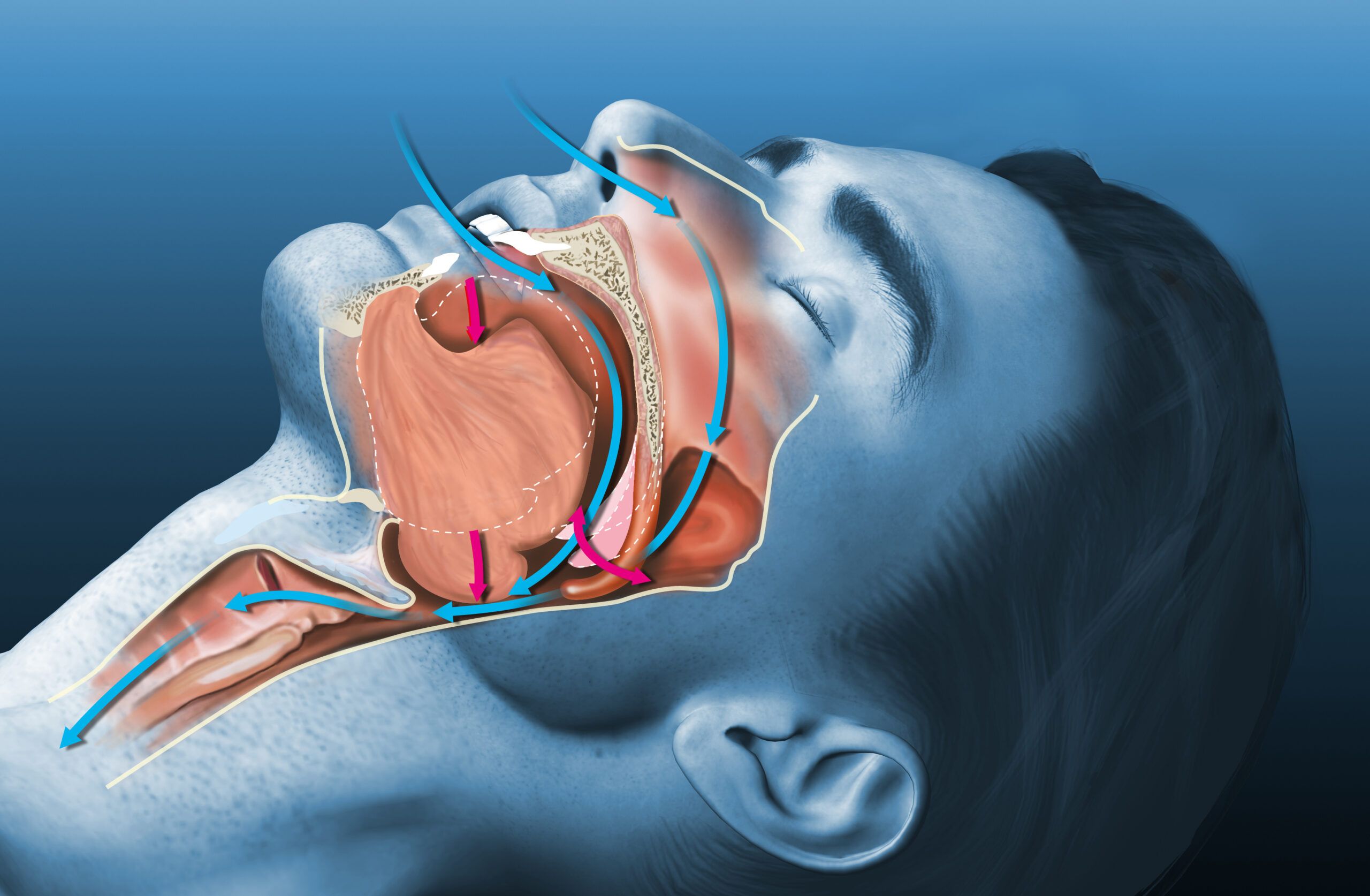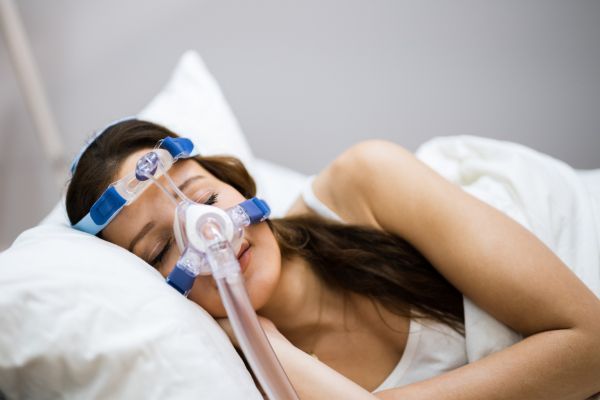By Sophia Deschler RN, BSN, RN | BSN
Updated on September 29, 2023
Published on August 3, 2023
Fact Checked

Get latest news, updates, and trends on mental well-being

Sleep apnea causes you to stop breathing for brief periods while you sleep. Experts estimate that sleep apnea affects about 5% to 10% of the population,1 but many people may have it without knowing.
You may not realize that sleep apnea and mental health are closely tied together. Sleep apnea causes you to lose out on precious sleep and affects the chemical balance in your brain.2
In this article, we will break down all the basics of sleep apnea and mental health, including how this condition can affect your mental well-being and what you can do to stay sane.
Dealing with sleep apnea will interfere with your ability to get a good night of sleep. Sleep and mental health go hand-in-hand. Your mental health affects how well you sleep, but your sleep quality also affects your mental health.
If you’re anxious, you’ll find it hard to fall (and stay) asleep at night. Or, if you’re depressed, you may sleep more during the day and then have a hard time sleeping at night.
When your sleep schedule is thrown off, it interferes with your mental health even more, creating a cycle of poor sleep and diminished mental health.
Sleep is essential for mental well-being. Sleep deprivation can exacerbate existing mental health issues and make you feel more emotionally vulnerable, making it difficult to handle everyday stressors.
Sleep apnea interrupts your sleep since you’ll wake up frequently throughout the night. This is a problem because every sleep stage is important for a full night of restorative sleep.3
A person with sleep apnea might wake up as many as 30 times per hour.2 This means that sleep apnea can lead to chronic sleep deprivation.
One researcher pointed out that people with sleep apnea typically have low levels of a chemical called GABA in their brain and high levels of another chemical called glutamate. GABA helps you stay calm and helps with mood regulation. Glutamate creates feelings of stress, and when levels are high, your brain won’t function as efficiently.2
Think of mental health issues as a sickness of the brain. Anything that interferes with the health of your brain will interfere with your mental health, and sleep apnea definitely has an effect.
When sleep apnea goes untreated, it can lead to mental health issues like anxiety and depression. Over time, it can also cause cognitive decline. Both of these factors lead to worsening mental health problems.
One study showed that individuals with sleep apnea were about 3 times more likely to have depression and anxiety when compared with those who do not have sleep apnea.4
Sleep apnea is not considered a mental health disorder, but its effects on mental health are very real.
Experts refer to sleep apnea as a sleep-related breathing disorder.
Because there are different types of sleep apnea, you may hear it classified differently, including the following:
Many common symptoms of sleep apnea overlap with those of certain mental health conditions. For this reason, it can make it hard to distinguish between the two conditions.
It may be hard for your doctor to determine if sleep apnea is directly causing your mental health issues aor exacerbating existing symptoms.
Some symptoms that overlap with both types of conditions include5:
Certain risk factors make you more likely to be diagnosed with sleep apnea.5
Sleep is essential for mental wellness for several reasons.
Because sleep is vital for your overall health, it is important to identify and treat conditions like sleep apnea promptly. Getting a handle on sleep apnea can help you rest peacefully throughout the night and feel your absolute best.
To determine if you have sleep apnea and need further diagnostic testing, you’ll first want to become aware of some of the most common symptoms5:
If your provider suspects you have sleep apnea, they’ll likely recommend an overnight sleep study. This involves sleeping at a medical facility where your brain waves, breathing, heart rate, and oxygen levels are monitored throughout the night. This is the best way to confirm sleep apnea.
Home sleep apnea tests are possible, but they are not as accurate. And sometimes, an overnight sleep study will still be recommended to confirm the diagnosis.
There are many different approaches to treating sleep apnea depending on the cause and the type of sleep apnea you have. Sleep apnea treatments have two main categories: lifestyle changes and medical treatments.

Lifestyle changes are a more conservative approach that can improve sleep apnea symptoms and potentially even treat it entirely. Examples include:
If lifestyle adjustments do not improve symptoms of sleep apnea, then your doctor may recommend medical treatment.
The most common medical treatment for sleep apnea is CPAP. CPAP stands for continuous positive airway pressure. This therapy involves wearing a face mask while you sleep that is hooked up to a machine. It continuously sends pressurized air into your lungs to help keep your airway open and prevent sleep apnea from occurring.
CPAP machines are effective, but they have some drawbacks. Some people find the mask uncomfortable, making it difficult to stick to the treatment.
Some patients can also find relief using a mouth guard, a smaller, more conservative alternative to CPAP.
If you struggle with sleep apnea, you’ll want to work with your doctor to find a solution. It is equally important to seek professional treatment for any mental health issues that your sleep apnea is causing or exacerbating.
Sleep apnea goes beyond just snoring at night. Untreated sleep apnea can seriously impact on your mental health and overall wellness.
Awareness of the importance of treating this condition is an essential first step. Luckily, there are a variety of treatment solutions available for sleep apnea. Talk with your doctor about your options.